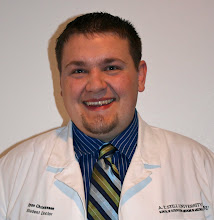I read a fascinating article in the best NYT blog, "Well," that beautifully articulates how the language of medicine is changing, and not necessarily for the better.
The term "provider" being used for every person writing a prescription or seeing patients is so pervasive that I've seen docs ask their patient who their PCP (primary care provider or primary care physician) is. Office staff add "MD" after every name of a referral in an office since even those that work in medicine aren't even clear of the difference.
Should there be a different recognition for Physicians versus say a physician assistant or nurse practitioner who may only have a Master's level training? Whether DO or MD, a "doctor" has completed a 4 year accredited program of medical education with further residency training to become board certified, this all after receiving an undergraduate degree.
I understand this is a difficult topic, and not to risk offending my dear friends and colleagues who function as a midlevel provider (NP or PA), but why is it so difficult for our patients and the public to understand this concept. I am a firm believer that medicine is a team sport, and any terminology that removes hierarchy is a good thing, but in our quest for equality have we gone too far the other way.
A fantastic article in the NEJM delves a little deeper, and I agree that there is a difference in the education that is hard to account for without some differences in nomenclature.
The New Language of Medicine — NEJM
I'm thankful for my NP and PA colleagues, and I know it will take the true team approach to create meaningful reform in our system. My belief is that physicians need to maintain our high standards in care, and that asking to be referred to as "Doctor" is a dedication to our hard work and commitment to training.
Beyond Flexner: Why we must rethink medical training reform
-
Our current scheme and its overbearing credentialism is out of date and
cannot keep up with a rapidly changing health care environment. Greater
flexibili...
11 hours ago




No comments:
Post a Comment